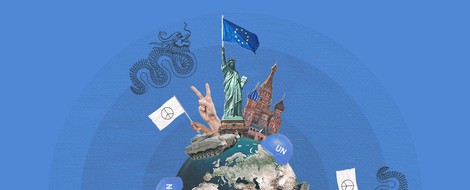Your podcast discovery platform
Curious minds select the most fascinating podcasts from around the world. Discover hand-piqd audio recommendations on your favorite topics.

piqer for: Global finds Technology and society Globalization and politics
Elvia Wilk is a writer and editor living in New York and Berlin, covering art, architecture, urbanism, and technology. She contributes to publications like Frieze, Artforum, e-flux, die Zeit, the Architectural Review, and Metropolis. She's currently a contributing editor at e-flux Journal and Rhizome.
Yiannopoulos’ Fall From Grace Prompts Controversy... About a Journalist
Laurie Penny’s new essay on the infamous Milo Yiannopoulos and the group of angry young men he’s spawned is an important read as much for its brilliant writing as for some of the debates it's incited. Many responses to Penny’s writing on the alt-right over time (here’s just one) have prompted articulate critiques of both her journalistic methods and her (white) feminism. While I think Penny’s writing holds its own against criticism, much of which is misguided, these debates have provoked important questions about both contemporary journalism and feminism.
When does embedded journalistic coverage of movements like the alt-right unwittingly become endorsement? How can a subject like Yiannopoulos be both humanized and denounced? How intersectional must feminist journalism be? (To the last one: very much, please.)
Penny has been hanging out with and writing about the “professional troll” Yiannopoulos for years. In this essay she covers his recent demise in public opinion, prompted, among other things, by a video in which he spoke of cross-generational gay relations. The conservative right saw this as an endorsement of child sexual abuse - apparently the one unforgivable thing the man has said after his endless hate speech about women, Muslims, and every group you can imagine. But, “this is not liberalism winning the day", Penny explains. "This is the victorious far right purging the brownshirts.”
Her take-down of Yiannopoulos and his “lost boy” followers is as incisive as you can get. But the strength and complexity of the writing is precisely what demands rigorous reading, including critique. Whatever you decide, it’s worth reading her work, while taking into account the responses. Then again, if you only have time to criticize one person today, make it Yiannopoulos.
